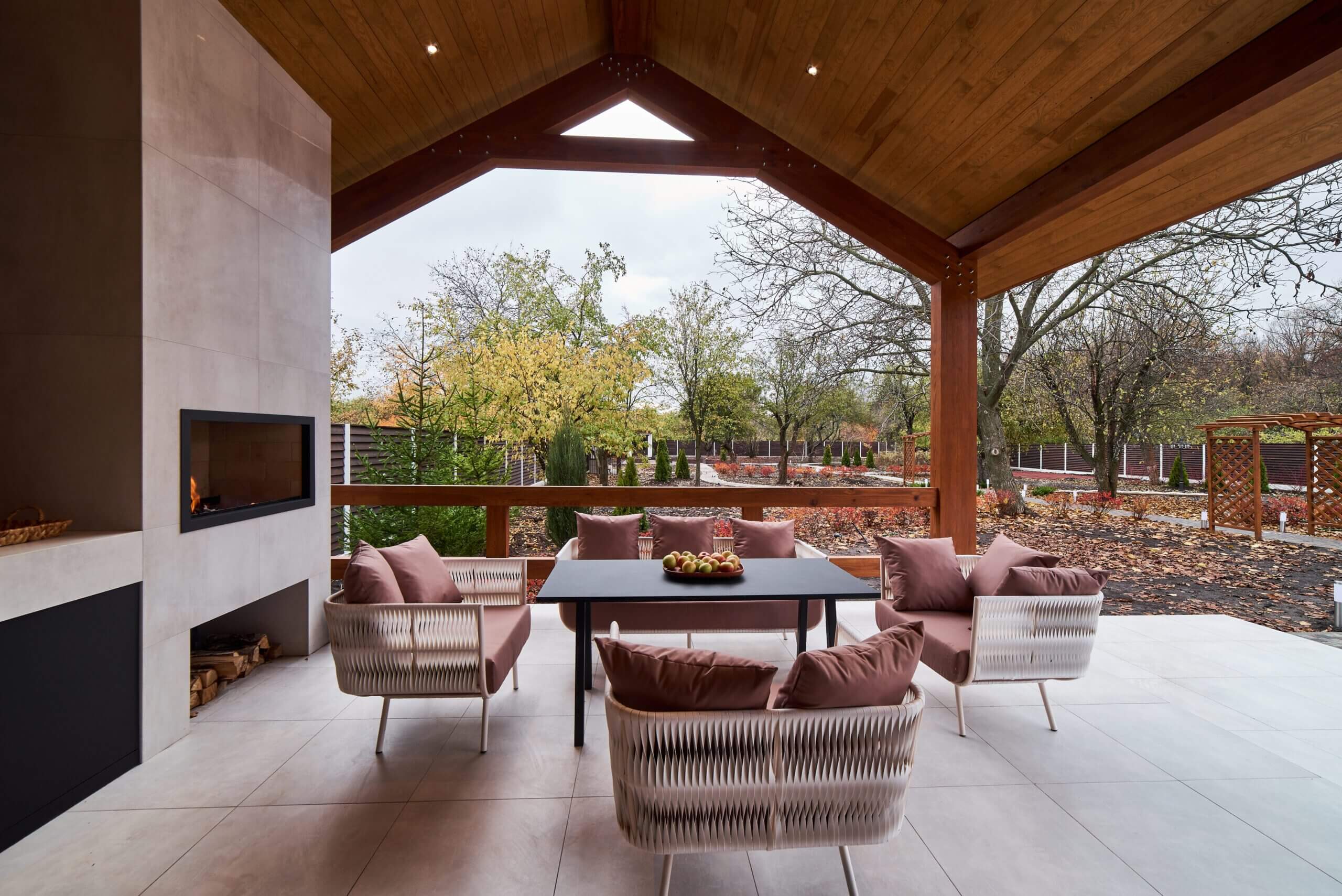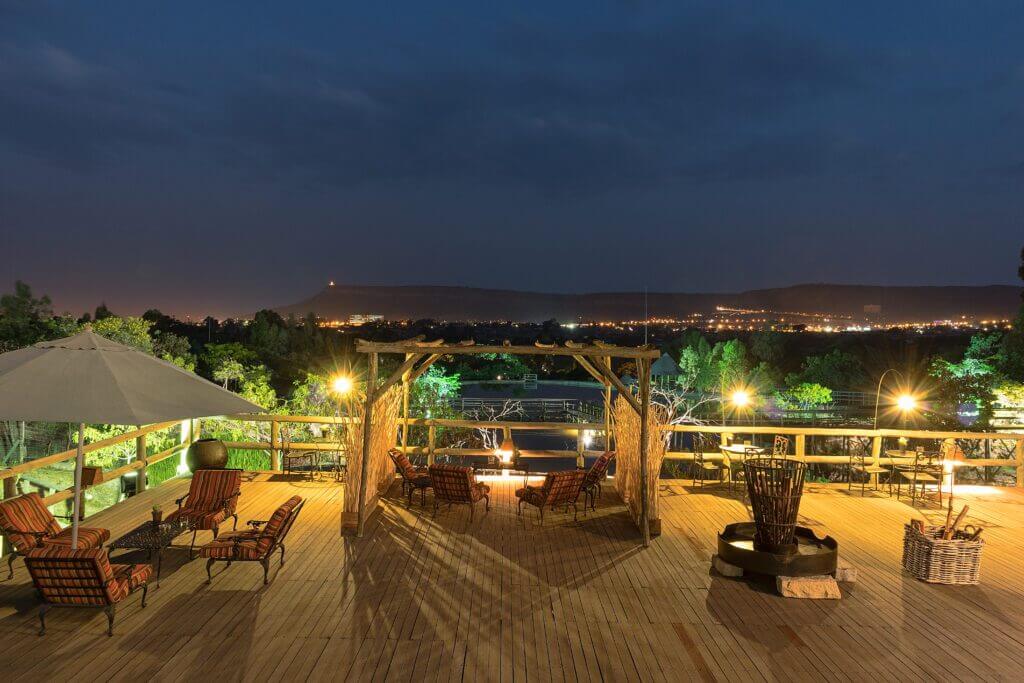According to 90 percent of Americans, outdoor living space is more valuable than it’s ever been before. However, 88 percent are actually dissatisfied with their outdoor spaces due to style, function or comfort level.
It’s practically criminal not to optimize your covered outdoor living space if you live in a place with year-round “outdoor weather” like Texas. Taking some small steps to make what’s going on just one step outside your door more hospitable can completely change the entire experience of your home.
Take a look at how to enjoy your outdoor living space simply by putting on a pair of fresh eyes!
Add Outdoor Furniture
The key to a great outdoor space is to bring the comfort of the indoors outside. There’s no better way to do this than with some comfortable furniture. The goal is to find cozy furniture that’s not a nightmare to maintain.

When looking for cushioned seating, focus on water-resistant and breathable designs.
While you don’t want to intentionally place outdoor furniture in the path of rain, you should anticipate some degree of moisture exposure. If you have a pool, this becomes especially important because guests will be sitting down while damp. Acrylic fabric is great for this.
Here’s a look at some good materials for outdoor furniture that less susceptible to rusting, fading or weather-
- Stainless steel.
- Aluminum.
- Synthetic resin.
- Teak.
If you want to create a country-chic look using wood, teak is a much better choice than other woods like cedar and pine. Teak that is maintained properly can last up to five decades! It also doesn’t have to be stored away in the colder months the way many other woods do.
While lots of patio furniture is made of wrought iron because it’s such an attractive medium, this is not a rust-proof material. With a choice like plastic, you might find yourself dragging furniture back from the neighbor’s lawn regularly because it isn’t wind resistant.
Rethink Patio Lights
Lighting is important for tying the outdoors into the indoors. Lighting should be considered within the context of a home’s landscaping. However, the goal isn’t just to illuminate the specific area where you’ll be sitting outdoors using patio lights.

Lighting actually comes in three categories.
- Overall Lighting.
- Task Lighting.
- Accent Lighting.
Overall lighting is the “main lighting” that creates visibility throughout the entire space. Think of a flood light that shines throughout your backyard.
Next, task lighting is used to add focused light to a specific area. This could be something like lighting for a path that leads from a patio to a pool.
Lastly, you can have some fun with accent lighting. Accent lighting is great for bringing out the details of an outdoor space while also making it appear bigger and grander. Common forms of outdoor accent lighting are spotlights and floodlights.
Screening or Enclosing the Patio
If you’re dreaming of a space where you can spend a heavy amount of time outdoors without dealing with exposure to bugs or wind, screening or enclosing an existing patio really works.
The good news about enclosing a covered outdoor space is that 90 percent of the work is already done. You just have to find a way to enclose the space without losing the flow between the patio and your yard.
Installing a custom enclosure will often cost a few thousand dollars. Some people who prefer not to make such a steep investment create do-it-yourself enclosures using trellises.
To do this, frame your open patio with large, six-foot trellises that you anchor into the ground with posts and cement footing at each corner of the patio. You can dress up a trellis enclosure with climbing plants.
Keep in mind that a trellis enclosure won’t provide the bug protection that you get from screen or glass enclosures. You also aren’t getting the benefit of really adding a “room” to your home without the work the way you are with a professional enclosure. However, you’re spending hundreds instead of thousands to add substantial privacy and coziness.
Turn on the “Cozy Factor” by Adding Some Form of Heat
To make the outdoor portion of your home the true heart, you need a hearth.
A heat source serves two functions. The first is to make the outdoors tolerable enough for people to want to sit outside on the chillier nights. The second is to create ambiance.
There’s room to go as fancy as you want with this. For some people, the propane heat lamps that you often see on patios at restaurants are just perfect. Depending on how much you spend, propane heaters can heat radiuses between 5 feet and 20 feet.
It’s really easy to find umbrella-style propane heaters for under $200 at any big-box or home-improvement retailer.
Other people really want that campfire feel in their yard. This is where you can actually integrate landscaping into your desire to have a fire pit.
You increase both the aesthetic appeal and safety of your yard if you lay down some masonry to create a stone or brick fire-pit area that’s a small distance from your house.
You don’t necessarily want to just place a fire pit on your existing patio. Fire pits should be at least 10 feet away from any structure that is combustible. Most people agree that 20 feet is better.
If you’re doing a DIY fire pit, keep in mind that natural rocks, sandstone, river rocks and gravel are all bad fits because they can actually crack or explode under high heat. You’ll want to instead source denser options that aren’t at risk for heat-moisture fluctuations that cause cracks and explosions. Some good options are fire-rated brick, granite, slate and poured concrete.
Why Not Love Your Covered Outdoor Living Space?
Everything from new patio furniture to a transformative enclosure can give you what feels like instant square footage with the snap of a finger. Just keep in mind that a desire to update your outdoor space easily and cheaply shouldn’t override quality.
If you have an HOA, make sure that any updates you add to your yard are in compliance with HOA rules. If you’re making any updates to the physical structure or electrical system of your home, check to confirm whether you need a permit before work can be done. It’s important to make sure everything is up to code in the event that you want to cash in on the newfound coziness of your home by putting it on the market.
